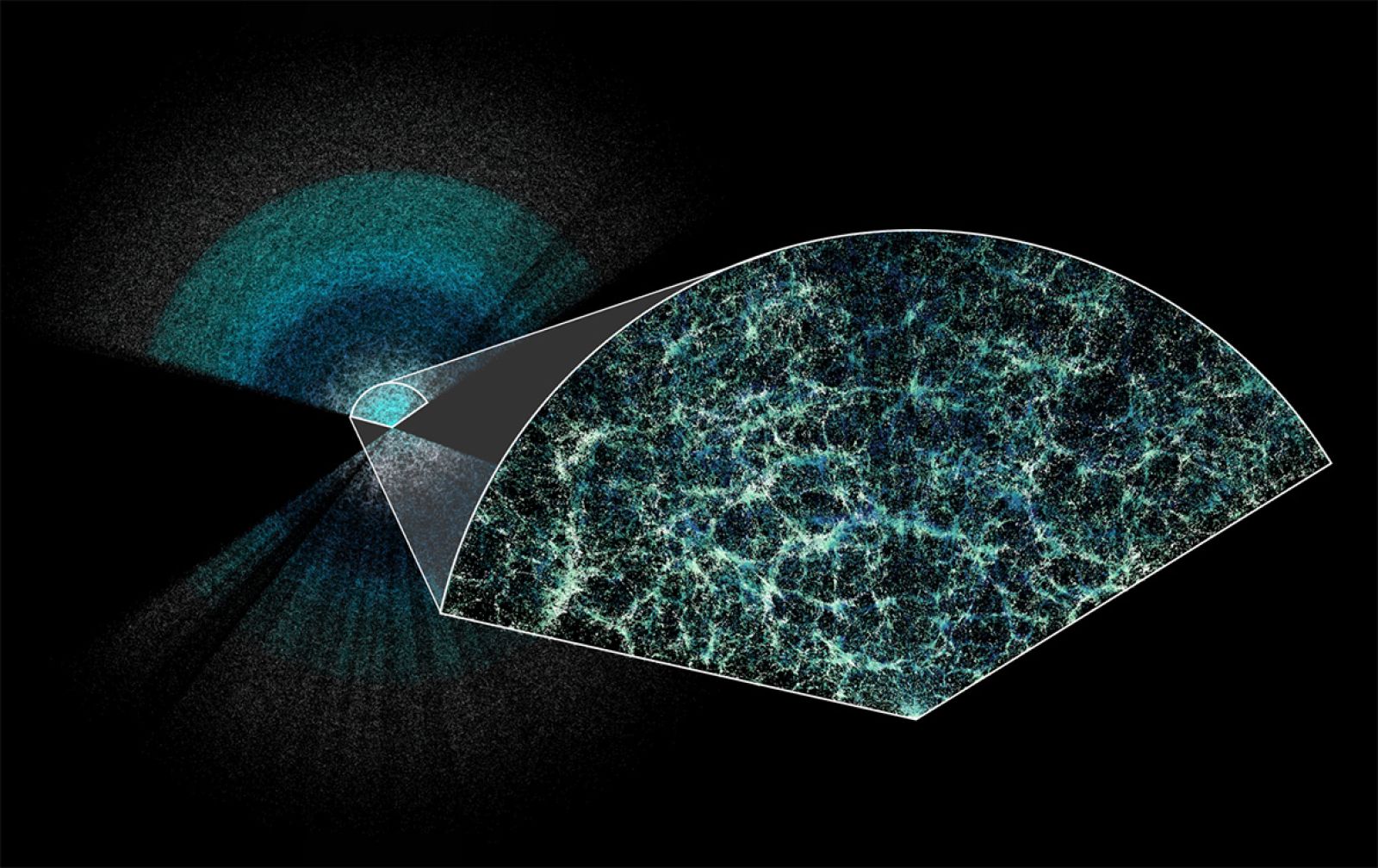Dark energy might not be constant: towards a paradigm shift in cosmology?
Follow us on Google News (click on ☆)
The observations of the Dark Energy Spectroscopic Instrument (DESI), mounted on the Nicholas U. Mayall telescope at the National Observatory of Kitt Peak, have yielded the most precise measurements to date of the Universe's expansion over the last 11 billion years. By studying a million galaxies each month, DESI has revealed an unprecedented 3D model of the Universe, surpassing the achievements of its predecessor, the Sloan Digital Sky Survey.

These new data suggest that dark energy might not be constant over time, contrary to the predictions of the standard cosmological model, the Lambda CDM model. This idea, still to be confirmed, suggests that dark energy evolves, refuting the hypothesis of a force eternally repelling galaxies and stars at an unalterable rate.
The distant galaxies observed by DESI serve as "lighthouses of the Universe," allowing the tracing of cosmic expansion. The project has also shed light on Baryon Acoustic Oscillations (BAO), subtle three-dimensional structures of the young Universe, frozen in time, offering an invaluable perspective on the Universe's expansion at different epochs.
Beyond galaxies, DESI examined over 400,000 quasars, whose light, as it travels through interstellar space, is absorbed by clouds of gas and dust, thus revealing dense matter pockets. This advanced technique has allowed researchers to probe the Universe at a much younger age, adding an extra dimension to our cosmological understanding.
These findings, still at a preliminary stage, require further observations to reach the "5 sigma" threshold, necessary to confirm a scientific discovery. If future data confirm the evolution of dark energy over time, this would imply a profound reevaluation of our current model of the Universe, paving the way for new cosmological theories.
The confirmation that dark energy is not a universal constant could not only transform our understanding of the Universe but also signal the beginning of an era of cosmological discoveries.